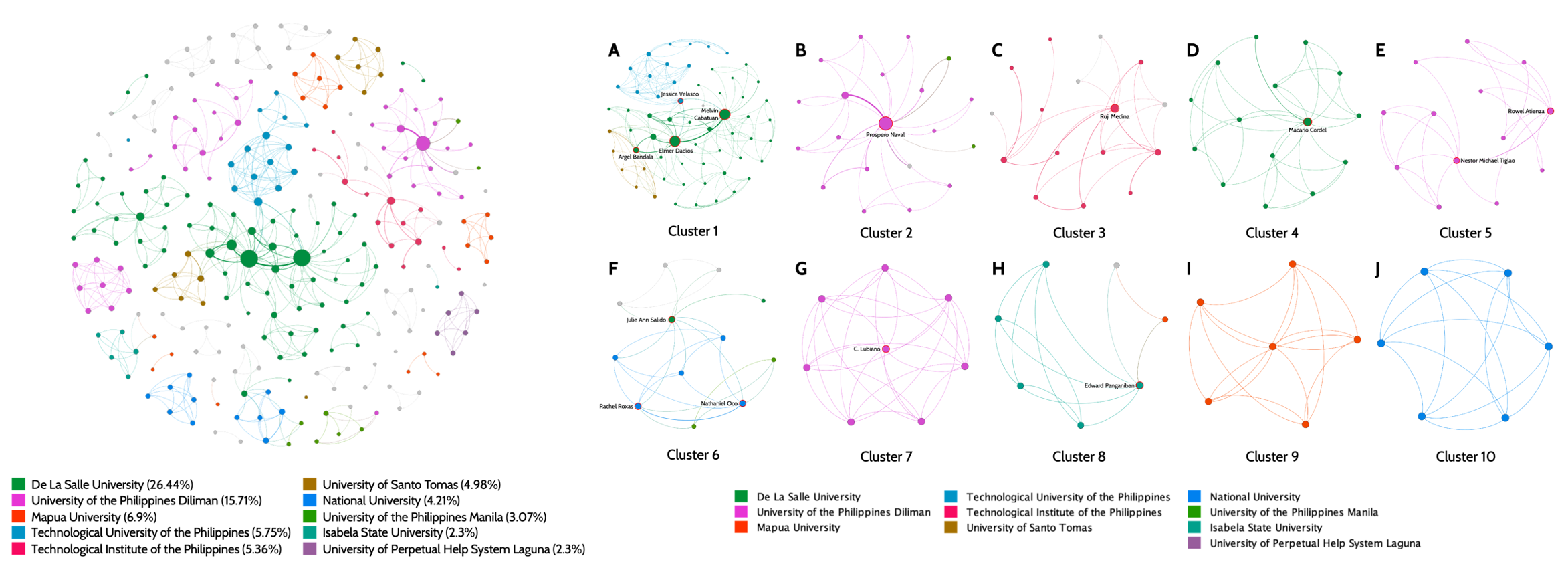Analysis of the co-authorship network of Filipino researchers in deep learning
Philippine Science Letters (PSL), 2020
Abstract
Deep learning is an emerging field that attracts attention from various researchers to use in analyzing and understanding increasingly complex systems and phenomena. Crucial to the advancement of deep learning research in the Philippines, institutions need to understand its direction and reach out and work with other leading researchers who have knowledge, insight, and resources to contribute to the challenges in deep learning research. Due to its wide application, we analyzed the collaboration dynamics and patterns of Filipino researchers working in this field through their co-authorship network. Our study found that while there is a steady increase in research productivity on deep learning, most of the publications and collaborations are concentrated on a handful of institutions like De La Salle University and University of the Philippines Diliman. Despite their current control over the direction of the local research community, these two top institutions have yet to form strong collaborations. We also found that Filipino researchers are mostly doing applied deep learning projects and rely heavily on undergraduate students to maintain productivity.
Materials
Bibtex
@article{LaoFilDLNetwork2020, title = {Analysis of the co-authorship network of Filipino researchers in deep learning}, journal = {Philippine Science Letters}, volume = {13}, issue = {2}, pages = {148 - 157}, year = {2020}, issn = {2094-2818}, url = {https://philsciletters.net/2020-148/}, author = {Angelyn R. Lao and Unisse C. Chua and Briane Paul V. Samson}, keywords = {co-authorship, network analysis, research productivity, Filipino, deep learning, Philippines} }
